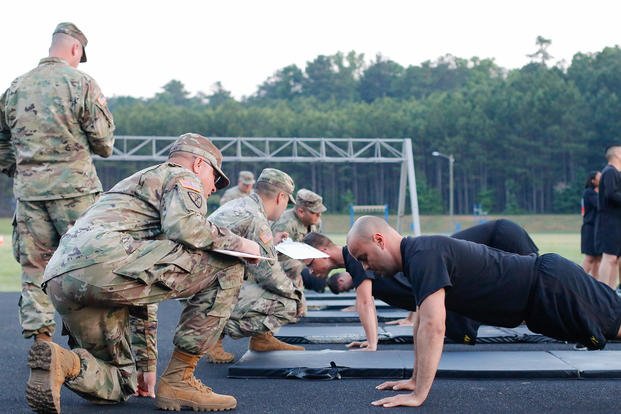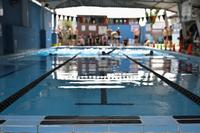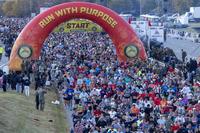Help, I only have one month until the PT test and I'm out of shape. What do I do?
I sadly get this request from readers who are "cramming" to pass a fitness test, either to get or keep their job in the military or law enforcement. This often happens when people do not train year-round and get out of shape. Also, sometimes instead of training specifically for the fitness test, they perform workouts or participate in unrelated athletic events that do not contribute to optimal or even passing performance on the test.
Some people may be battling illness or injury and have deconditioned due to recovery protocol, but some are just "too busy" or don't like to exercise. Here are three mistakes to avoid if you're unprepared for your PT test:
- Weight-room bodybuilding
- Exercising only a few times a year
- Getting so out of shape that you fail a fitness test or perform your job poorly
Each of the above mistakes can affect your overall performance and health negatively:
- Being able to bench-press a truck is a waste of time if you want to succeed at PT tests and in your profession.
- Not training regularly leads to injury and sets you up for failure.
- You only get good at testing by testing. Practice the test. Get specific.

Too many people do not train regularly and start training for the physical fitness test about 1-2 weeks before the test. Worse still, they do workouts that actually can make running harder or timed events, such as push-ups, pull-ups and sit-ups, more challenging than they have to be.
The good news for unprepared candidates and soldiers out there is that it's possible to help yourself in one month, if not one week. Of course, with such a short time to prepare, you will not have optimal, 100 percentile scores, but you can get well into the passing zone and avoid flirting with minimum or failing scores.
However, waiting until the last minute is a mistake because not training for anything is training to fail. Failure will lead to many consequences in your profession. Proper training is critical to job performance and acceptance as well as your health because:
- If you fail, you could lose your job. If you fail as a recruit, you might not get hired.
- Not staying in shape year-round can get you killed in an emergency situation or prevent you from saving someone that needs your help.
- Failure or sub-par performance can affect your promotion value.
What should you do now with only one month away from the PT test:
If you've already fallen into the last-minute trap, here's how you get out:
- Make sure you know all the testing parameters of the test you are taking. Know the test, required times, rest periods, etc.
- Take a practice test and start a water and nutrition plan.
- Each day's workout should feature an element of the test. Each week should include a practice run of the actual test. It's important to learn how to take the test.
- Start specific training now, even two-a-day workouts. Mix in non-impact options so you do not over-train for the running test. Your goal is to hydrate and lose excess weight to assist with any circumference tests and to make running easier.
Here is a quick routine not many people know about. It has been helping people gain 50%-100+% on their PT test scores in 14 days for more than 20 years.
Push-up Push: With this supplemental plan, you can increase your push-ups significantly in two weeks.
Pull-up Push: With this supplemental plan, you can increase your pull-ups significantly in two weeks.
Sit-up Push: Learn to goal-pace yourself and build your score in two weeks.
Running Plan: Running plan to assist with getting faster at timed runs. Lay off the heavy leg workouts while in a running/speed cycle.
One of the Exercise 101 concepts is the FITT principle: Frequency, Intensity, Time, Type (Specificity). If your goal is to pass a test or compete in an event, you have to train with the above four elements to see success.
This number one tip of acing a fitness test is part of The Military, Police, Firefighter PT Test Survival Guide, where more than a dozen mistakes to test-taking are discussed, complete with a seven-week workout plan.
Stew Smith is a former Navy SEAL and fitness author certified as a Strength and Conditioning Specialist (CSCS) with the National Strength and Conditioning Association. Visit his Fitness eBook store if you're looking to start a workout program to create a healthy lifestyle. Send your fitness questions to stew@stewsmith.com.
Want to Learn More About Military Life?
Whether you're thinking of joining the military, looking for fitness and basic training tips, or keeping up with military life and benefits, Military.com has you covered. Subscribe to Military.com to have military news, updates and resources delivered directly to your inbox.



















